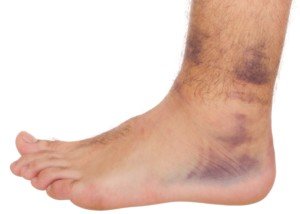If you have diabetes and are wondering if you should not wear sandals, there is definitely something you must first do before you take to wearing sandals.
And that is to see a doctor.
“If a diabetic has neuropathy and/or peripheral vascular disease, then sandals and open toed shoes are to be avoided,” says Peter D. Highlander, DPM, Reconstructive Foot & Ankle Surgeon, Director, Wound Reconstruction Center, The Bellevue Hospital, Bellevue OH.
This includes sandals and open toed footwear that are flat.
“If a person is unsure if they have neuropathy or PVD, then they should make an appointment with their local podiatrist [foot doctor],” advises Dr. Highlander.
Neuropathy from Diabetes
Many diabetics have or will develop peripheral neuropathy.
This condition is characterized by the inability to feel pain from a foot sore or injury such as a cut or laceration.
Wearing sandals means an increased risk of foot or toe injury – for obvious reasons.
What might be an innocuous scratch to a nondiabetic can turn out to be a nightmare for the person with diabetes — either type 1 or type 2.
And people who don’t have diabetic neuropathy or any other issues with their sensory nerves will immediately know when there is an injury or skin tear – and treat it.
If they don’t treat it and it becomes infected, they will surely feel this and then treat it.
The diabetic may miss this opportunity that’s triggered by sensory nerves.
Left untreated (because neuropathy blunts pain), a sore or cut can become infected, then become gangrenous and require amputation of part of the foot or even the leg.
PVD
Peripheral vascular disease is hardening of the arteries in the legs/feet. PVD can cause many symptoms including painful walking, for which sandals would not be a smart idea for obvious reasons.
However, PVD can also result in sores in the feet or toes that won’t heal.
In summary, if your feet are at risk for sustaining unhealed wounds or injuries, you just should not wear sandals – even on the hottest days.



























